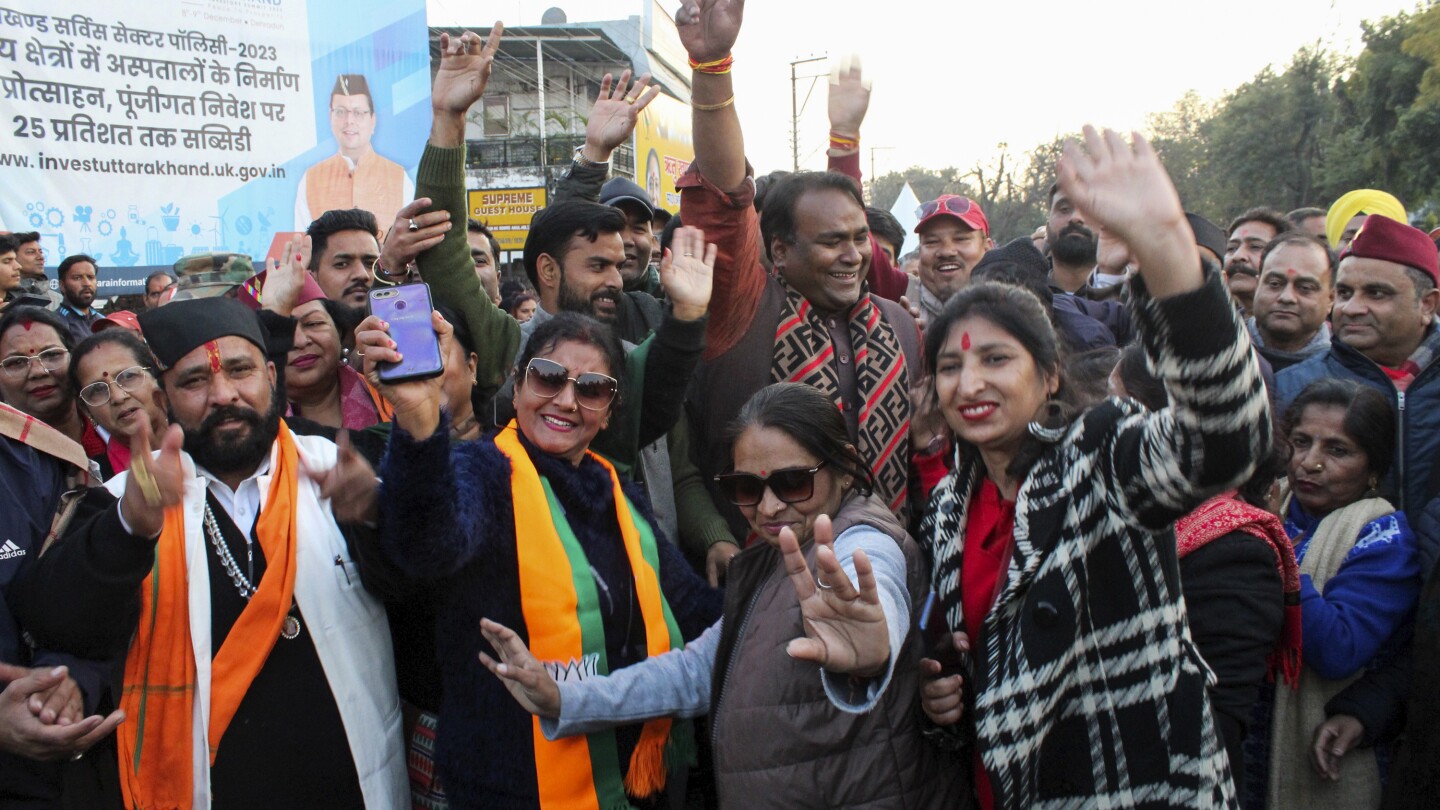LUCKNOW, India (AP) — An Indian state has approved an unprecedented uniform code for marriage, divorce, adoption and inheritance for Hindus, Muslims and other religious communities under new legislation that also requires couples that live together to register with the government or face punishment.
Northern Uttarakhand state lawmakers passed the legislation on Wednesday and its approval by the state governor and the Indian president is seen as a formality before it becomes law in the state. Muslim leaders and others oppose the Uniform Civil Code initiated by Prime Minister Narendra Modi’s Hindu Nationalist party saying it interferes with their own laws and customs on such issues.
India, the world’s most populous nation with more than 1.4 billion people, is comprised of around 80% Hindus and about 14% Muslims. Muslims accuse Modi’s right-wing nationalist party of pursuing a Hindu agenda that discriminates against them and directly imposes laws interfering with their faith.
“This is a nefarious political design to drive a wedge in the society on religious lines,” said Yashpal Arya, an opposition Congress party lawmaker.
Pushkar Singh Dhami, the top elected official in Uttarakhand state, said: “The new legislation is not against any religion or community, but will bring uniformity in the society.”
Other states ruled by Modi’s Bharatiya Janata Party are expected to introduce similar legislation. If the BJP wins national elections expected in April or May, it may bring such legislation at the federal level.
The new law bans polygamy and sets a uniform age for marriage for men and women — 21 and 18, respectively — across all religions and also includes a uniform process for divorce.
Hindus, Muslims, Christians and other minority groups in India currently follow their own laws and customs for marriage, divorce, adoption and inheritance.
Asaduddin Owaisi, president of the All India Majlis-e-Ittehad-ul-Muslimeen, said the legislation is merely a Hindu code that applies to all.
“I have a right to practice my religion and culture. This bill forces me to follow a different religion and culture. In our religion, inheritance and marriage are part of religious practice,” he said on X, formerly Twitter.
S.Q.R. Ilyas, the spokesperson for the All India Muslim Personal Law Board, said: “The bill is unnecessary, and goes against the principle of diversity. Its primary target appears to be Muslims, especially since even (some Indigenous tribes) have been exempted.”
A significant feature of the bill is the introduction of stringent measures that require the registration of live-in relationships. Couples failing to register their live-in status with district officials could face up to six months in prison or a fine of 25,000 rupees ($305) or both, said Manoj Singh Tamta, a state government official.
He said the bill explicitly states that children born out of such relationships will be considered legitimate offspring of the couple, inheriting all legal rights available to those born within a traditional marriage.
Sanjay Agnihotri, a consultant with a non-government organization that works in micro-financing, said he and his girlfriend belong to different castes and their families oppose the idea of them marrying. They relocated to another city and started living as partners without formalizing their relationship through marriage.
“However, the new legislation mandates us to register our relationship, which could potentially subject us to unwarranted police scrutiny,” said Agnihotri.
Uttarakhand became the first Indian state after it won independence from British colonialists in 1947 to adopt legislation on marriage, divorce, land, property and inheritance for all citizens, irrespective of their religion, a key part of the BJP’s agenda for decades.
___
Sharma contributed from New Delhi.

